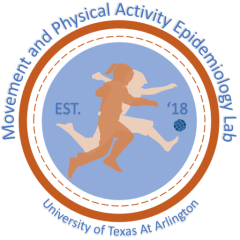MPAE Lab Mission
At the MPAE Laboratory, our mission is to champion healthy behavior and advance health equity through cutting-edge research, education, and community engagement. We embrace an interdisciplinary approach that centers on understanding and rectifying racial/ethnic disparities in obesity, physical activity, neuromotor and mental/cognitive health. Our research delves into the intricate interplay of environmental (including nature and built environment) and social determinants of health disparities, with a primary focus on developing evidence-based interventions. These interventions aim to foster physical activity, neuromotor function, and psychosocial well-being, especially in cases of obesity, depression, cardiovascular disease, and neuromuscular disorders.
At the MPAE Laboratory, our mission is to champion healthy behavior and advance health equity through cutting-edge research, education, and community engagement. We embrace an interdisciplinary approach that centers on understanding and rectifying racial/ethnic disparities in obesity, physical activity, neuromotor and mental/cognitive health. Our research delves into the intricate interplay of environmental (including nature and built environment) and social determinants of health disparities, with a primary focus on developing evidence-based interventions. These interventions aim to foster physical activity, neuromotor function, and psychosocial well-being, especially in cases of obesity, depression, cardiovascular disease, and neuromuscular disorders.
As part of our commitment to innovation, we explore cutting-edge technologies, including Neuro-Rehab VR Systems and mobile applications, to infuse technology into physical activity interventions that enhance neuromotor function and cardiovascular health. Our research portfolio extends to the utilization of multisensory wearable devices, such as Actigraph LEAP™, for comprehensive evaluations of human mobility, encompassing balance, gait, heart rate variability, and 24-hour movement behaviors, including sleep, physical activity, and sedentary behaviors.
Moreover, the lab employs digital neuro-psychomotor assessments, exemplified by CANTAB®, to elevate the precision of neuromotor performance evaluations. By generating a wealth of data points and minimizing noise, these assessments empower us to derive highly sensitive insights correlated to neural networks.
Graduate students within the MPAE lab are not just learners; they are equipped with the knowledge and skills essential for impactful careers as university professors, researchers, and professionals at the forefront of physical activity, neuromotor epidemiology, and health disparities. Collaboratively, we aspire to contribute to a healthier and more equitable future for diverse populations by translating our research findings into tangible and sustainable solutions.

The MPAE Laboratory is equipped with a variety of active video games, activity neuromotor monitors and equipment, including:
- MavFit visual gaming system: VR Omni Treadmill, VR Icaros flying machine
- SMARTfit Cognitive-Motor Training Platform and Strike Pods
- Active Video Game systems with smart TV
- Dance Dance Revolution stations
- Actigraph GT9X+ accelerometers (n = 120)
- Yamax SW-700/701 Step Digi Walker Pedometers
- Portable Stadiometer, weight scales, medical scales
- 3 Computer workstations and 2 printer/copier/fax
- Virzoom virtual reality bike
- Tanita BC-558 Ironman Segmental Body Composition Monitor
- FITNESSGRAM testing kit
- Various Neuromotor assessment (TGMD-3,MABC, BOT-2 etc.)
- Skinfold calipers for body composition assessment
- Portable LCD Projectors
- Cognitive assessment (Behavior Rating Inventory of Executive Function®)
- Cambridge Neuropsychological Test Automated Battery (CANTAB) highly sensitive, precise and objective measures of cognitive function, correlated to neural networks.
Relevant Research Topics
- Investigating the intricate mechanisms of childhood obesity and neuromotor development within underserved minority pediatric populations through the design and implementation of evidence-based interventions.
- Developing and validating assessments for neuromotor performance and 24-hour movement behaviors (including physical activity, sedentary behavior, and sleep) in both laboratory and community settings.
- Designing multi-component interventions to scrutinize environmental factors (both built and natural) and social determinants contributing to health and behavioral disparities, focusing on issues such as obesity, chronic disease, and physical inactivity.
- Implementing technology-infused physical activity interventions, such as Neuro-Rehab VR Systems and Wearable Sensors, to promote mental health and prevent cardiovascular risk behaviors (e.g., sedentary behavior, screen time, and sleep disorders).
- Utilizing multisensory wearable devices to evaluate human mobility, encompassing balance, gait, and 24-hour movement behaviors.
- Investigating the behavioral and psychosocial mechanisms that underlie neuromotor and brain health, with a specific focus on conditions such as depression, memory decline, and neurological disorders.
- Examining the effects of varying doses of physical activity on individual mental and cardiovascular health.
- Exploring the relationships between children’s motor competence, physical activity, health-related physical fitness, and obesity disparities, particularly among minority populations.
- Establishing a community-based participatory research program for physical activity and health promotion among individuals with and without disabilities, including those with Intellectual and Developmental Disabilities (IDD) and Developmental Coordination Disorder (DCD).
These research topics collectively underscore our commitment to advancing knowledge, promoting health equity, and addressing critical issues in physical activity, neuromotor development, and health disparities.






